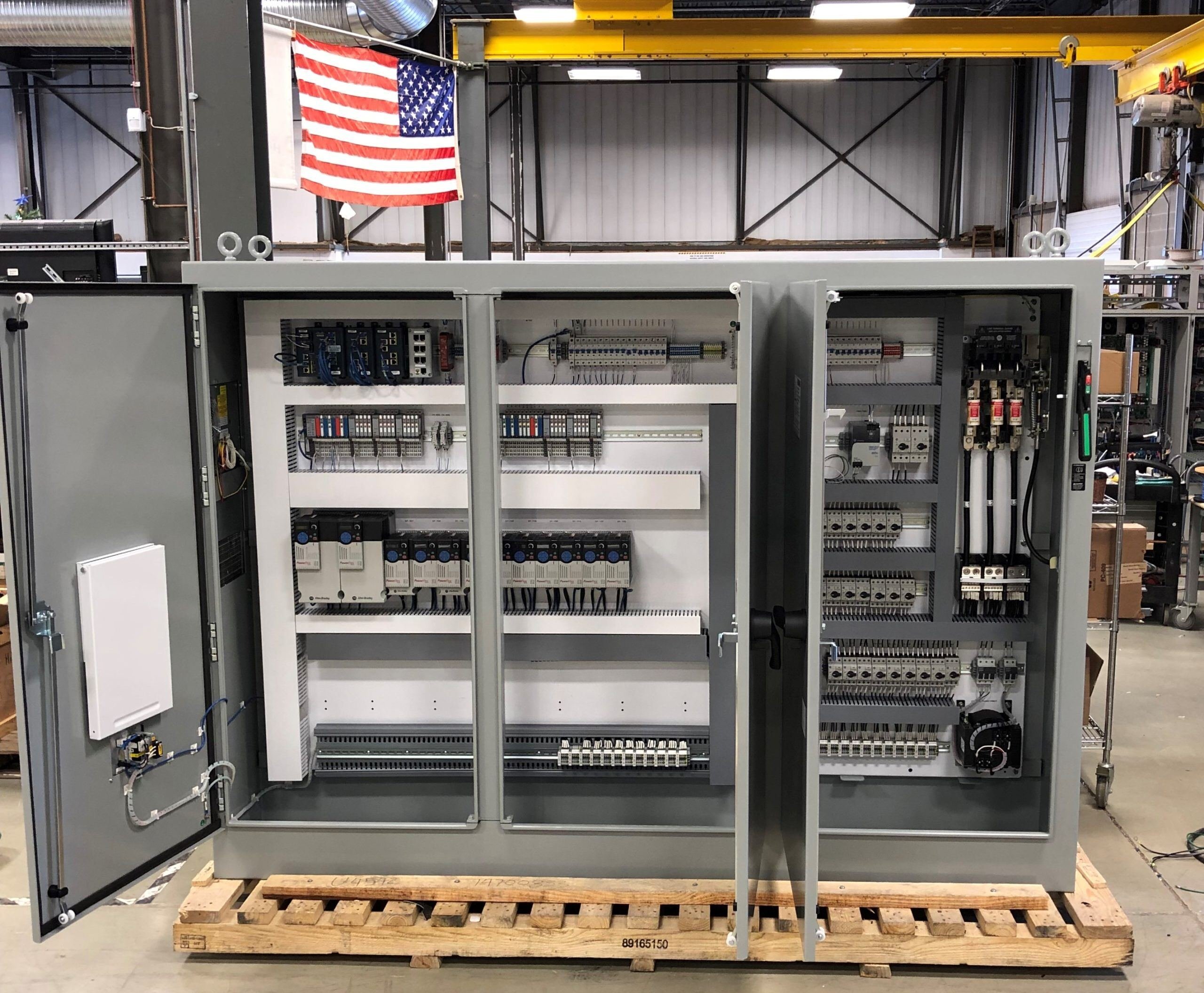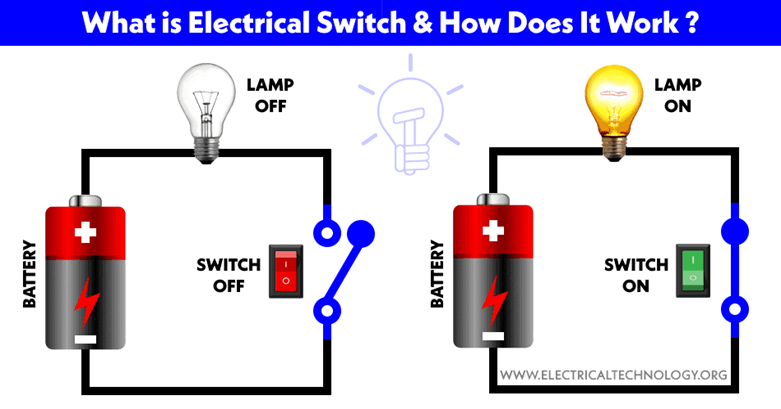Electrical Switches for Manufacturing: How to Know What You Need
July 15th, 2024
4 min read

Think about your morning. You likely get up and head into the room where you start your day. The first thing you do is turn on the lights. (How else could you get ready for your day if you can’t see?)
You flip the switch and power flows to your lights — from the pole outside, through your circuit breaker in the basement, through the switch, to light up your kitchen,
Both are examples of electrical switches. Electrical switches interact with an electrical system to control the flow of electricity in any given place. Installed virtually everywhere that has electricity, switches are a common and essential component to any electrical system.
In the world of manufacturing and industrial automation, this holds true too. However, manufacturing facilities don’t use the same ones you have in your house. Instead, they need customized products like control panels to direct the flow of power. Because they’re custom, these come through either a design-build or contract manufacturing process to fit the needs of that unique facility
Switches have many applications, so you likely know where and when to use one. But do you know which type of switch you need for your facility?
At ASG, we manufacture panels and enclosures that incorporate switches. Let’s walk through what exactly electrical switches are, the different types, and some manufacturers you should consider for the future.
What Exactly Are Electrical Switches?
Electrical switches are a fundamental component of an electrical system. They control the flow of electricity by turning circuits on and off, connecting or disconnecting the path in an electrical circuit. Each switch is housed inside an enclosure, which protects it from environmental factors and reduces the risk of electrical hazards.
In simple terms: when disconnected, the electrical system will not function; when connected, it functions properly.

Source: Electrical Technology
However, not every switch looks the same or operates in the same way. Some simply turn power on and off, while more advanced switches can perform multiple functions.
- Manual Switches: These basic switches are operated manually to open or close a circuit. They are often referred to as “dumb” switches because of their simplicity in just turning the power on or off without any additional functionality.
A light switch in your room, a thermostat on the wall, and keyboard buttons are all examples of manual switches.
- Fused Switches: Similar to manual switches but with added fuse protection, these switches introduce a safety mechanism that breaks the circuit if an overcurrent condition occurs. Each fuse has a specific current rating, and it blows if the current exceeds this rating, cutting off the electricity supply to reduce risk. However, fuses are not resettable.
- Circuit Breakers: Like fused switches, circuit breakers…. Unlike fused switches, circuit breakers can be reset to restore power. They are an advanced version of switches, obtaining built-in protection mechanisms. They use bimetallic elements that bend and trip the breaker when an overcurrent or short circuit is detected.
Think of your home – you have a circuit breaker in your basement that you can switch back over if your electricity switches off due to an overcurrent.
- Non-Automatic Molded Case Circuit Breakers: These devices look like regular circuit breakers, but do not have smart tripping mechanisms. They are simple switches without overcurrent protection and function like manual ones.
There are many different types of switches, which can all have a variety of functionalities. To apply this to a specific situation, let’s use an example of a Battery Energy Storage System.
Your facility is looking to install a BESS system, as your facility needs to be in full operation at all times to maximize productivity. Additionally, BESS can lower energy costs and can monetarily benefit your company.
After researching, you determine that installing a 2000 Amp / 1500vDC switch that can be manually switched on or off is necessary because it allows you to isolate parts of your system, taking them offline. It ultimately acts as a kill switch.
While your system is getting designed, you make this known to the manufacturer and they provide you with the correct switch for you. Since this switch is manual, you are in control, making it far more reliable than a switch that could potentially switch on/off when unneeded.
Leading Manufacturers of Electrical Switches
There are leading manufacturers in the industry that can provide you with top-notch switches.
- ABB: Known for its wide range of electrical products, ABB offers high-quality switches with various ratings. Although ABB has an extensive range of products, their UL-listed products are somewhat limited in higher ampacities (the amperage), compared to competitors like Socomec.
- Socomec: As a key player in the switch market offering products with a higher ampacity (up to 2000 amps), Socomec is known for its reliability and extensive range of offerings.
- Littlefuse: While not as expansive as ABB or Socomec, Littlefuse provides reliable switches that are often manufactured in-house or outsourced from other manufacturers.
- Rockwell Automation: Rockwell also offers quality switches for various applications.
Finding the Right Electrical Switch for You
So, which should you go with? That is ultimately based on what you’re looking for. The manufacturers listed provide different ampacities (the amperage of the switch) and, depending on where you are looking to install the switch and for what purpose, the company you choose to go with can vary.
Let’s go back to the example above. You are looking for a BESS system. After discussing the switch with your manufacturer, they recommend going with Socomec. Socomec’s switches can now go up to 2000 amps with a UL listing. To efficiently run your facility on this BESS system, with a switch that can handle these currents, Socomec would be the best option.
Electrical switches are essential for managing power in electrical systems. Understanding the types of switches and their functionalities helps in selecting the right switch for the specific application.
Manufacturers like ABB, Socomec, Littelfuse, and Rockwell Automation offer a variety of switches to meet different needs, ensuring safety and reliability in electrical installations.
Now that you have basic information and an overview of the key aspects of electrical switches, you can begin to assess what you require in your facility. If you have any questions or need guidance, reach out to ASG today!
Topics:

